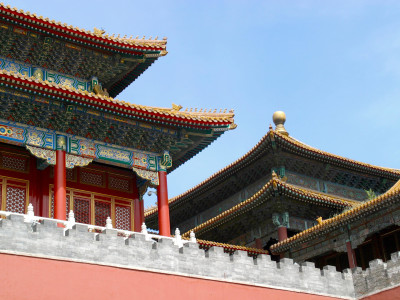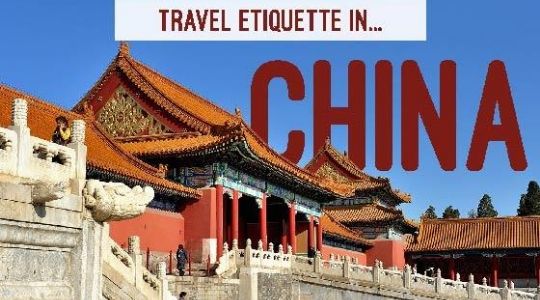20 Great Suggestions To China Famous Food Destinations
20 Great Suggestions To China Famous Food Destinations
Blog Article
Top 10 Tips On Shopping In The Street Markets In China
1. Arrive earlyTip. Market vendors can offer lower prices to first customers when they arrive at the market earlier.
Pros: Buying before the deadline allows you to have a greater selection and lets you bargain more.
Con: It requires waking up early. This may not work for everyone's schedule.
2. Bring Cash
Tip: Most street market vendors prefer cash, although mobile payment options such as WeChat Pay or Alipay are becoming more popular.
Pro: Making cash payments can make transactions more smooth and can give you negotiating leverage.
Con: Carrying lots of cash increases your risk of stealing or losing it in crowded places.
3. Learn Basic Mandarin
The best way to learn is to study words like "Zhegeduoshaoqian?" ("How much is that?") The ability to use phrases like "Zhege duoshao ba" ("How much is that?") or "Pianyiyidian ba?" (Can you lower the cost?) You can communicate more effectively.
Pros: Builds trust with vendors and displays respect for the local cultural traditions.
Cons: The lack of vocabulary can still lead to misunderstandings.
4. Inspect goods with care
Check for any defects or flaws, especially on electronics, clothing and other handicrafts.
Pro: Ensures you get the price you're paying for, and prevents disappointment in the future.
Con: It can be time-consuming and could be a source of irritation for vendors.
5. Shop with Confidence
Do not be afraid to bargain, as it is common in markets on the street. Try to reduce the price by 50-70% initially.
Pro: Bargaining is the best way to cut cost.
Pro: It's intimidating for those who aren't familiar with it.
6. Beware of counterfeits
Do not buy products that are branded, like watches, bags and other electronics. They're usually fake.
Pro: It's not a waste of money on cheap imitations.
Con: Genuine goods are more difficult to find and cost more.
7. Local Customs
Tip: Learn from how locals shop, bargain, and interact with sellers in order to adapt your strategy.
Pro: It can help you avoid making cultural blunders and blend in.
Con: It could take some time to master the customs.
8. Keep Valuables Secure
Tip: Use anti theft bags or secure your wallets and phones in pockets to keep them from being stolen at markets.
Lowers the risk of theft in areas that have large traffic.
Pro: Extra security measures may seem restrictive or uncomfortable.
9. If you are buying food, try it before purchasing.
Tips: A lot of food stores allow you to sample snacks or dried products prior to purchasing. Make use of this opportunity to be sure you are buying quality.
Pro: It guarantees that you are satisfied with the flavor and quality of the food.
Con: Some sellers may make you buy after presenting a sample.
10. Know the market's focus
Tips - Every market is focused on specific types of items like the Yuyuan Market (in Shanghai) for souvenirs, and Panjiayuan (in Beijing) for antiques. It's essential to study prior to time to reach your shopping goals.
The goal is to save time and focus.
Cons: Your spontaneity will be restricted if your research is strict.
Pros of Shopping in Street Markets
Discover items that are not found in traditional stores, like local food items or hand-crafted crafts.
Street markets are cheaper than shopping malls and stores.
Cultural Experience: Engaging with vendors and exploring the market is a fantastic method to become immersed in the local cultural.
The market has a broad variety of products, including food, clothing and souvenirs.
The cons of shopping in street Markets
Products that are copyright: The chance of finding copyright goods or products of poor quality is very high.
Crowds are a common sight particularly on the weekend and on holidays.
Pressure from Vendors: Some vendors may use selling tactics that are aggressive, which makes the experience overwhelming.
The majority of purchases are not returnable or exchanged.
You can stay clear of common pitfalls by heeding these suggestions and preparing yourself. See the most popular check out this top tourist destination for site advice including shenzhen golf club, guanlin temple, eating in zhengzhou, hohhot transportation, xishuangbanna, eating in dunhuang, the song of everlasting sorrow the famous long narrative poem, kweichow moutai the best and most famous liquor in china, jiuzhaigou, luoyang peony and wangcheng park and more.
Top 10 Tips To Make Seasonal Visits To Temples That Are Renowned In China
1. Visit during off-season. (Autumn/Winter).Tip. The temperatures will be cooler, and there will be fewer tourists.
Pro: It is less crowds. It is a tranquil and tranquil atmosphere.
Cons: The weather could be chilly than usual, making outdoor temple tours less enjoyable.
2. Be Prepared For Weather Extremes
Tips: Temperatures can be subject to a wide range of variations during the various seasons. Winters can be brutally cold, while summer temperatures are usually hot. Prepare according to the forecast for the weather.
Pro: If you're prepared for any weather condition, you'll feel comfortable on your visit.
Con Cons: Packing for seasonal extremes isn't always easy, especially if you're traveling with a light load.
3. Visits during the spring and Summertime to view Vibrant Flora
A tip: Visiting temples in the summer and spring months is a great way to take in beautiful gardens, blooming flowers, and lush landscapes around the temples.
Beautiful scenery can enhance the experience of visiting temple grounds.
Con summers can be very hot and crowded on holidays, particularly national ones.
4. Consider Festivals & Special Events
TIP: Plan your trip to the temple during festivals of traditional significance that are celebrated, like the Chinese New Year in January/February or the Mid-Autumn Festival in September. These festivals feature a wide range of rituals and ceremonies as well as an opportunity to immerse yourself in the rich culture of the temple.
Pro: Temples are full of traditions and exciting occasions. They provide a unique experience.
Con: During the festival season, temples can get very busy and accommodation costs could rise.
5. Beware of Peak Holiday Seasons
Tip Beware of visiting temples during tourist peak season, such as Chinese New Year and Golden Week (October), when they can be overcrowded by both local and foreign visitors.
Pro: Enjoy a peaceful trip without crowds.
Pros: Some important events can be skipped during busy times.
6. Look for Temple Closures in Winter.
Tip: Some temples may have limited hours, or even be closed during the colder winter months, in particular in remote regions or in northern areas. Always confirm this in advance.
Pro: Avoids unnecessary trips and ensures you can organize other activities ahead of time.
Con: Certain temples could have reduced hours or completely closed for renovations, leading to disappointment.
7. Early Morning Visits in Summer
Be sure to arrive early so that you can avoid the noon sun's heat. Many temples are open in the morning, when there are less people and there is less heat.
A cooler and quieter experience, without the crowds.
Con: Requires an early morning, which may not be a good fit for all.
8. Be Prepared for Rain in the Summer
Tipp: Heavy rains are common in the summer months, especially in the southern region of China. Pack an umbrella and rain gear for your visit during this time.
Pro: You can still admire the beauty of the temple when it rains.
Cons: Rain can make outdoor activities unusable and temple grounds to get slippery.
9. In Autumn, visit temples in mountainous areas
Tips: Visit temples in the mountains such as Mount Wutai (or Mount Emei) in the autumn. The temperature is cool and the autumn leaves make an incredible scene.
Pro: Cooler temperatures are perfect for exploring nature and hiking.
Con: The most popular mountains temples still draw crowds particularly on weekends and during holiday seasons.
10. Take into consideration the Lunar Calendar when planning specific occasions
Tips: A lot of temples in China adhere to the lunar calendar, and some rituals or events are tied to certain dates of the lunar calendar. Study the calendar in order to attend significant events like the Lantern Festival, Buddha's Birthday or other temple celebrations.
Pro: A unique experience in culture and deeper understanding into local spiritual practices.
Cons: It may require additional planning time and study to ensure that your travel dates are aligned with the lunar calendar.
The Benefits of Going to Chinese Temples in the Season
Less crowds during off-season trips offer an unwinding and contemplative experience.
Cultural Events: Festivals can provide an understanding of the local beliefs and culture.
Scenic Beauty: Visiting during the seasons of spring and autumn may provide stunning scenery and lively gardens surrounding temples.
The weather is cooler in autumn and winter.
Cons of Visits to Chinese Temples in Season
Uncertain Weather: Winter may be cold, while summer could be too hot, which could affect your comfort.
Temple Closures - Some temples close during extreme weather, or when they have only a few hours.
At popular festivals can bring large numbers of people. This makes it difficult for you to fully appreciate the temple’s tranquil atmosphere.
Special Events: Certain celebrations or events during the season are not possible if you visit outside the right time frame.
If you schedule your trip in accordance with the season, it will make for an unforgettable and enjoyable trip. You may be seeking peace and peace or a cultural celebration Understanding the changing seasons will help you make the most out of your trip. See the recommended check out top attractions in this area for blog info including some gifts from china, chinese kites a phoenix shaped kite, temple of confucius one of the three largest ancient architectural complexes, shopping in xi an, the color of dress in china, zechawa valley tour route, chinese furniture the development history of chinese furniture, chaka salt lake, top three buddhist temples in chengdu, chaotianmen dock%EF%BC%8C a major water transportation hub in chongqing and more.